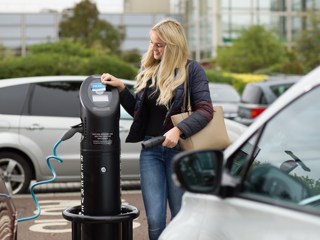The decline in diesel car sales in the UK continues apace, with a 26% drop recorded for 2018/19. The period saw sales fall by 242,000, from 930,000 to 688,000 vehicles.
According to figures published by national accountancy group UHY Hacker Young, this is the second consecutive year of rapidly falling diesel car sales, with this year’s 26% decline matching the 26% fall in 2017/18. Conversely, sales of battery electric vehicles (BEV) in 2018/19 rose 41%, from 13,000 in 2017/18, to 18,500. Petrol sales were up 10% during the same period.
As FleetNews recently reported, fleets are taking delivery of the first RDE2 diesel cars, cutting vehicle excise duty (VED) and company car tax, with manufacturers promising that more models will follow. However, it remains to be seen if company car drivers benefiting from the removal of the 4% benefit-in-kind (BIK) tax diesel surcharge, will prove enough of an incentive to help slow the trend.
The drop in UK diesel car sales mirrors that of Europe, where diesel new car registrations continue to decline. In 2018, volume fell by 12.8% and market share was down from 46% to 39% year-on-year.
If current trends continue, it is predicted that registrations of electric cars will surpass those of diesel models in July 2020.
The rise of pure electric cars and hybrids
- The first quarter of 2019 saw the biggest-ever quarter for sales of battery electric vehicles, with 7,000 new vehicles registered. Nissan’s new Leaf model was a key driver behind this trend.
- Hybrid electric models, such as the Toyota Prius, saw sales rise 26% to 92,000 in the past year. The category now makes up 4% of all new cars sold.
Paul Daly, partner at UHY Hacker Young, said: “Diesel sales have now almost halved in the two years since the emissions scandal – this has changed the landscape of new car sales completely. Between the negative perceptions of diesel engines among buyers, and the Government’s moves to discourage diesel through tax, it’s unlikely that diesel sales will recover in the foreseeable future.
“This is a shame, as the latest Euro 6 diesels actually make a compelling environmental case, especially for higher mileage drivers. Manufacturers and dealerships will have hoped that petrol sales would make up for the shortfall, but that simply hasn’t happened.
“The accelerating sales growth of battery electric vehicles is great for the small number of manufacturers who have a credible challenger in that market. However, that market is still only a tiny fraction of new car sales overall.
“The real disruptor to the market at present remains hybrids, and battery electric vehicles still have a big gap to close to change that.”





















Mike - 28/06/2019 10:51
The increase of BEV from 2107/8 to 2018/9 according to the article is 5500 units. Set against total new car sales in 2018 of around 2.37 million this represents a somewhat less newsworthy increase of 0.23%.